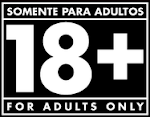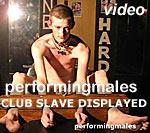The F-Word
Dissecting hipster Seattle's most loathed,least defended figure: the frat boy.
Through a basement door one floor beneath his downtown Ballard club's main stage, Sunset Tavern owner Max Genereaux and booker Kwab Copeland are putting the finishing touches on a major remodel of a large storage room that Genereaux refers to as his former "coke den."
Genereaux is a recovering substance abuser who has been sober for two years. His drug-and-booze-addled past is something he's very comfortable discussing. But his experience as a former rush chairman and four-year resident of the University of Washington's Zeta Psi fraternity in the late '80s? Not so much.
"In the music community, it's perceived as being a very negative thing," says Genereaux of his frat alum status. "I'd much rather talk about being in recovery from drugs and alcohol. Because [fraternity life] is so misunderstood, I just don't bring it up."
That's not because Genereaux has anything negative to say about his Zeta Psi experience. Quite the opposite, in fact: "I loved it," he says. "It was a great way to go to school. You lived with upperclassmen who could help you with class selection and tutoring. We were there to get an education, and there was a lot of that going on. The guys I was friends with, we all graduated. I'm not saying there weren't dumb guys there—there are dumb guys everywhere—but there were many quality individuals that I'm friends with to this day." Given the drinking problem that he already had, Genereaux says, "I can't imagine what I would have been like on my own."
Genereaux took over the Sunset in 2000, when he was still drinking. "I always joke that I don't really like music," he says. "I like the party. I was going out to see shows to get loaded and see people."
Eventually, the getting-loaded portion of that equation snowballed to the point where Genereaux, whose struggle with harder drugs didn't begin until well after college, sought treatment at a rehab center in Central Washington.
"I behaved in my 30s in ways that I'm far more embarrassed about than anything I did in college," Genereaux says, "because my addiction continued to progress to where I was behaving in some pretty sick ways. And that had nothing to do with my days in the fraternity. I've watched guys who are gutter-punk skateboarders behave just as bad or worse than any of the shit I saw go down in fraternities."
Genereaux's ex-Greek status puts him in the company of countless creative and literary stalwarts. Kurt Vonnegut was a frat boy. So were Jon Stewart, David Letterman, Larry David, Will Ferrell, Zach Braff, David Spade, Steven Spielberg, Harrison Ford, Ben Stein, Billy Crudup, David Schwimmer, Matthew McConaughey, Drew Carey, Jeremy Piven, Bob Woodward, P.J. O'Rourke, Dennis Miller, Brad Pitt, and Jim "Jesus" Caviezel (UW Sigma Chi, class of '90). Both Simon and Garfunkel were frat boys, as were R.E.M.'s Peter Buck and current alt-country darling Bobby Bare Jr., who was a Lambda Chi at the University of Tennessee–Knoxville.
"Because my dad is famous," says Bare, whose papa is Nashville royalty, "I had the opportunity to go to one of the rich-boy fraternities—but I didn't want to." Instead he went to Lambda Chi Alpha, which he says "was the biggest fraternity on campus because they didn't really turn anybody away. It was every yahoo. I hung out with lots of people from the most backwoods, out-of-the-way places that I would have never hung out with in other circumstances. I had a blast."
Yet Bare is quick to acknowledge that not all the stereotyping concerning frat boys is entirely baseless. "It's not that all people in fraternities were assholes," he says. "It's that all the assholes were in the fraternities."
Here in Seattle, the self-proclaimed capital of all things indie, the schism between creative types and supposed Greek conformists couldn't be more pronounced. "What do people think frat guys listen to?" asks Barsuk Records publicist Ever Kipp, before answering his own question. "Dave Matthews, John Mayer, and Jack Johnson: That's the antithesis of indie rock. The frat lifestyle wholeheartedly embraces the mainstream."
In college, Kipp was "sort of a weird goth dude" who did not belong to a fraternity. Yet there were moments of envy. "Sometimes I wished I could be at a party with 300 people, hitting on some hot blond girl," he admits.
This, of course, hints at a chink in the DIY community's anti-frat armor, which has been propped up in large part by broad pop culture stereotyping in movies like Animal House, Revenge of the Nerds, Van Wilder, and Accepted. "The whole point of those movies is that the outsiders are taking down the powers that be," says Van Riker, Kipp's colleague at Barsuk and a former Theta Chi at Syracuse University. "And Seattle is an outsider culture."
"Especially in this town," adds Kipp, "people in indie rock want you to think they sit around drinking pinot noir and talking about Chaucer." Some of the time they do, says Kipp. But more often, they act like frat boys. I ought to know: Like Genereaux, I'm an ex-Greek (Alpha Delta Phi, UW, class of '96), and have been privy to the behavioral patterns of both factions, which I've found to be more intertwined and similar than their perceived animosity toward one another might suggest.
A couple of summers ago, Johnny Utah (not his real name) sat at a bar in Dallas, Texas, cowering in fear. Joining him was a handful of fellow Seattle indie-rock luminaries, unwinding after yet another successful tour stop. Surrounding their table were approximately 50 male members of a local school's Greek system, embodying the very essence of the striped-shirt-and-Jägermeister frat-boy stereotype.
"We were all sitting there, talking shit," recalls Utah. "Even me, knowing what I know."
Turns out, Utah wasn't afraid of getting his ass kicked by the assembled Greek throng; he was afraid his indie-rock pals would unearth a skeleton he'd buried in the deepest corner of his closet: that he was once a frat boy, too. (So petrified of being outed as a former frat boy is Utah that he insisted we use a pseudonym and disguise other details before he'd agree to speak for this story.)
"There's shame in it," says Utah of his secret frat-boy past, spent at a small private college in the Pacific Northwest. "Not for something I did, but for what people assume."
As an adolescent growing up in the Mountain West, Utah held the stereotypes surrounding fraternities to be more or less true. "I remember seeing a lot of it and thinking it was totally ridiculous," he recalls. "High-school girls going to frat parties, and frat guys trying to date high-school chicks."
Utah enrolled in college coming off of "an abnormally fun high-school experience." Thus, his university-mandated first semester in the dorms was "fucking boring." So Utah decided to give fraternities a second look. What he found surprised him—and ultimately compelled him to pledge.
"It wasn't crazy big-school date rape," says Utah, evoking another well-trod Greek stereotype. "It was an outlet to have fun. And there's so much that lends itself to real life. Rush is like a job interview."
Granted, Utah also recalls "a lot of naked late-night bike riding" and the fact that he and his brothers all dressed in "the uniform": khaki pants, polo shirts, and baseball caps. But uniforms are not unique to frat boys, he notes. "You'll see four guys in a band who all look alike. Some of the people I work with all wear the same jackets."
Nor do frat boys have a monopoly on excessive drinking. "In the music business, your life is centered around shows and bars," adds Utah. "It's almost looked down upon if you don't drink."
"Everybody joins a clique or group—even indie-rock hipsters," says Jason Crume, who, like me, was a member of Alpha Delta Phi at the University of Washington in the mid-'90s, and who now sells fine wine for a living.
The roots of local tension between indie rockers and frat boys can be traced back to the early '80s in the U District. Fraternities were thriving during the Reagan era, just as the seeds that would spawn Seattle's grunge-rock explosion were being sown on and around University Avenue.
"The core of the Seattle punk-rock scene was on the Ave for many, many years," says Dave Dederer, 42, a founding member of the Presidents of the United States of America. "And, of course, a few blocks away is fraternity row. Those two cultures rubbed up against each other. If you went to Roosevelt High School and were a punk rocker, you were at risk of being called a fag and getting the shit beat out of you."
And yet, says Dederer, "We used to go to frat parties because there was music. There weren't a lot of places to see music if you were underage, and crashing frat parties was one way. The Young Fresh Fellows played tons of frat parties. They were sort of the biggest, most viable band in town at the time."
But when punks and frat guys would happen upon each other away from Greek Row, confluent hotheadedness would often prevail.
"I have one vivid memory involving frat boys and punk rockers," recalls Dederer. "In June of '82, I was at the Roscoe Louie Gallery [in Pioneer Square], which was a seminal place for punk-rock shows. The Fastbacks were headlining, and the Living [featuring future Guns N' Roses drummer Duff McKagan] opened. The bassist in the Living was Todd Fleischman, a big martial-arts ass-kicker of a guy. There were about 10 of us hanging out on the sidewalk after the show, and this whole frat-boy group came out of the J&M and started calling us faggots, basically angling for a fight.
"Fleischman ripped his shirt off and started running as fast as he could after these guys up Yesler, just screaming," Dederer continues. "They all scattered. It was a great moment."
Seated near a window at the Red Door Alehouse in Fremont, Mike Self ponders the challenges of resuscitating his (and my) former UW fraternity house at a time when going Greek is as unpopular as it has been since the '70s, a decade widely considered to be the nadir for all things frat. Our house, Alpha Delta Phi, ceased operating around the turn of the 21st century, after a highly publicized incident in which a pledge fell out of a second-floor window, and has rented its rooms to student boarders in the years since. Self, a 37-year-old hedge fund manager ("I guess if you're a hedge fund frat guy, you're really screwed," he quips) who lives on Queen Anne with his wife, Angie, is one of a handful of former Alpha Delts who've agreed to head up the chapter's "reboot committee."
"We're just a little unsettled right now as a country," theorizes Self. "[People are] very anti-establishment, and fraternities are very establishment. Recognizing the upside of being part of an organization like a fraternity is harder to see than in the '80s, when everyone—and I mean everyone—was wearing alligator shirts." (Of course, polo shirts came back in among the hipsters a few years ago, but ironically.)
Huddled over a pitcher of Rainier a mile and a half south at Targy's Tavern, Jason Crume is joined by his former UW classmate and fellow Alpha Delt, Kevin Erickson, who served as president of the fraternity during the mid-'90s. A few years after graduation, Erickson and Crume opened Bricco, a popular Queen Anne wine bar. Crume recently sold his stake in the business to Erickson, but the two remain close friends.
"Alpha Delts wasn't your average fraternity," says Erickson. "When I tell people [I was in a house], they're like, 'I would have never thought'—and I was the president. We, having gone through it, see it for what it is and not the made-for-TV date-rape special. It was a big fuck-off party a lot of the time, but there is stuff that makes you a better person."
"There's a lot of diversity in the Greek system, but we were all in this compressed echo chamber," says Pete Pedersen, an ex–UW cheerleader who was recruited to Alpha Delts by Self in the early '90s when the latter served as rush chairman. "Now, you're starting to see some of that diversity come out. The system probably suppresses it, and that's where the stigma comes from."
It was Pedersen, in fact, who compelled my Alpha Delt brethren and me to see beyond our own preconceived notions of what we thought male cheerleaders—aka "cheer queers"—to be. There were barrier-busting brothers like this in virtually every house. For every fraternity that appeared easy to pigeonhole personalitywise, there were four others whose membership crossed just about every imaginable societal boundary and presented a multifaceted collective face.
"You put 100 people together, and there're going to be all different types of personalities and outlooks on life," adds Genereaux, whose fraternity was across the street from Alpha Delta Phi on 21st Avenue Northeast. "That's exactly what happened."
"I get a kick out of letting people know what kind of fraternity I was in," says Crume. "We were all smart guys, and we were different. We pushed the rules and broke them a lot. If anything, it teaches you to be more tolerant."
Crume's observation rings true on many levels. Still, it's undeniable that UW's Greek system has historically been overwhelmingly Caucasian (just like indie rock). And I didn't know of any outwardly gay Greeks when I was in school. As with many male-dominated institutions—pro athletics most prominent among them—implicit homophobia ruled the day in the UW Greek system of the '90s.
Not anymore, says Alex Llapitan. Now in his sophomore year at Pi Kappa Phi, Llapitan didn't conceal his homosexuality during rush, a stance he assumed would result in belittlement and rejection. But that's not what transpired.
"Everyone in the house was a lot different than I thought they were [going to be]," says Llapitan. "I thought they'd be like, 'Oh, he's gay,' but everyone was totally cool with it. I break a lot of the stereotypes for a lot of guys."
As for the indie-frat chasm and the stereotyping therein, Llapitan's housemates are both aware of and relatively unbothered by the postgrad repercussions.
"There's definitely polarization between indie culture and fraternity culture," says Pi Kappa Phi junior Max Nazaryan. "I know fraternity members who are really indie in the way they dress and the stuff they're into, but if you're into the indie [rock] scene, if they're blasting rap music at party after party, it's probably kind of tough to swallow."
As for being stigmatized postgraduation in a town with a vociferous counterculture, Pi Kappa Phi sophomore Andrew Powell says, "I'm not too worried because people in the business realm understand that there's more to it than that. If they do feel [turned off], I'll bite the bullet. I'm not going to lie about it."
Trouble is, certain professions and subcultures take a collective view of fraternities that's skewed to the point where one's Greek letters might as well be scarlet. In my case, whenever anyone decides to denigrate me publicly (comes with the territory in this biz), the F-word inevitably gets trotted out—or at least some codified version of it, as was the case when a former colleague referred to me in a newspaper article as "sort of a backwards-hat type of guy." Insinuation noted, although anyone who knows me realizes that I never turn my bill around.
"Stereotyping is part of human nature; it's how we categorize things," says Mike Self. "But if you're being judgmental, that's something else."
Long Winters frontman John Roderick's most vivid frat-boy memory is a veritable memoir that doesn't involve actual frat boys—but may come closer to describing the sociological guts of the stigma than any that do.
"A couple years ago, I was at a party in a nearby town celebrating the completion of a new record by an up-and-coming Northwest band," says Roderick. "The party was an informal gathering of friends—all indie rockers—in the singer's backyard. The producer of the record, a well-known musician himself, was in a celebratory mood and became quite tipsy, eventually retiring to the upstairs bedroom to 'rest' while the party soldiered on.
"Looking for fun," Roderick continues, "I said, 'I'm going to go upstairs and draw a big dick on his forehead [with a] Sharpie marker.' I made a show of marching off in the direction of the house, but I was immediately swarmed by three or four concerned indie girls who grabbed my arms and shrieked, 'Don't you dare!' This doubled my resolve, and there commenced several minutes of drunken grab-ass as I tried to get up the stairs. When it became clear that they would never let me pass, I went instead to the rest room, where I discovered 15 rolls of unattended toilet paper. Where I grew up, leaving 15 rolls of toilet paper unguarded was like setting a tuna casserole on the floor to cool in a house of five dogs. It goes without saying that I immediately smuggled a dozen rolls out of the house and proceeded to TP the trees and bushes all across the front yard while the party noisily raged on behind the fence. I was discovered only when I threw the last roll of toilet paper high up into a tree. The singer-guitarist of the band in question looked me up and down when I returned to the backyard and said, with some effort to sound withering, 'John, you're such a...a...frat boy!'
"The insult was the equivalent of slapping my face with a white calfskin glove," Roderick goes on. "The term 'frat boy,' as he intended it, had all the connotations of beer-swilling, date-raping, jock, macho crap. I laughed, because to me, a fraternity boy was someone who sneered insults at people with sarcastic WASPy smugness. His knotted-sweater, white-collar disapproval was everything I associated with the Greeks.
"So here we stood, two indie rockers, faced off across a gaping cavern of American culture as defined by the term 'frat boy.' He dismissed my car-wreckin', prank-pullin', fire-startin', gun-shootin', whoop-it-up, call-the-cops American party-makin' with one word: frat. And I saw his sniffing, eye-rolling, weak-assed, big-vocabulary-but-not-quite-used-correctly tsk-tsking as more or less the same thing: fraternity boy. But in fact, we were both limp-wristed, lit-major indie rockers."
The operative words in Roderick's diatribe: "gaping cavern." The stigma associated with frat boys is not a one-size-fits-all-proposition, but has rather been expanded over time to signify anything that anyone might find remotely annoying about white heterosexual males.
I know, I know—poor little white boys. To that, I'll grant you that of all the oppressed groups in society, ex–frat guys should be low men on the totem pole. But like cheerleaders, gays, urban Republicans, white-collar defense lawyers, and Air Supply fans, we deserve to be out, proud, and freed from the shackles of prejudice, once and for all.
Source: Seattle Weekly
Sunday, March 18, 2007
Subscribe to:
Post Comments (Atom)





















No comments:
Post a Comment